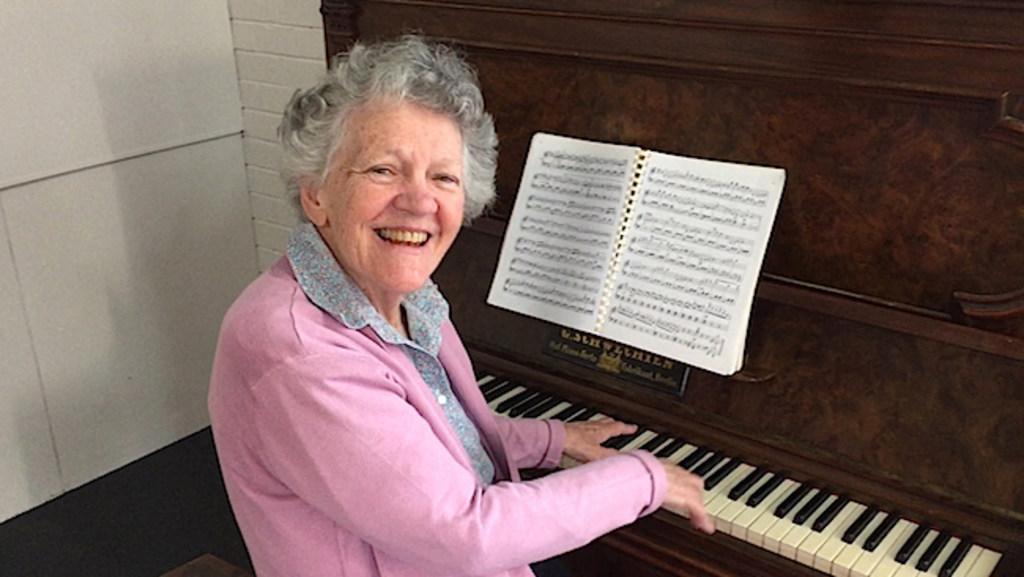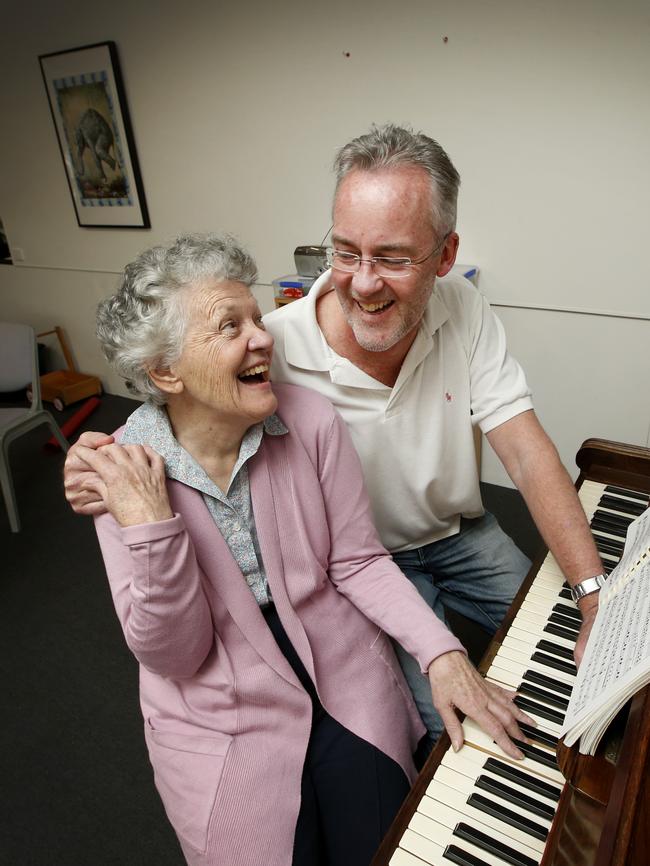Alzheimer’s disease breakthrough: Melbourne drug trial achieves amazing results
EXCLUSIVE: PATIENTS are waking up from some of the most devastating impacts of Alzheimer’s disease after a world-first drug trial in Melbourne.

News
Don't miss out on the headlines from News . Followed categories will be added to My News.
PATIENTS have woken up from some of the most devastating impacts of Alzheimer’s disease, regaining the ability to play sport, paint and enjoy time with family, after a world-first drug trial in Melbourne.
The remarkable results have fuelled hopes among doctors of the first major improvement in treating the horror disease since the 1990s.
Pianist Pauline Stevens has regained the ability to play the piano after being placed on the experimental Anavex 2-73 drug trial at Caulfield Hospital.
Award-winning artist Valerie Lynch has also rediscovered the ability to paint after beginning the medication, stunning her doctors, family and friends.
When Melbourne was selected as the first city in the world to test Anavex a year ago, lead researcher Associate Professor Steve Macfarlane had no idea how much of an impact it would make.
“They seem to be significantly improved in terms of what they can do. It is function that has improved and in many cases mood as well,” Prof Macfarlane said.

“To me, seeing real improvements to patients is much more important than seeing a statistically significant improvement on a rating scale.
“Seeing people regaining abilities is far more powerful and important than that.”
While the turnaround in the abilities and mood of the 32 patients involved has been the most overwhelming factor, the early data has been equally impressive. It shows a huge improvement in the cognitive ability of the patients, with the drug so far proving to be four-times more effective than the current treatment.
The drug is designed to target the sigma-1 receptor cells that remove abnormal proteins from cells, but which can stop functioning effectively as people age.
By rebooting the process, the drug is hoped to clear the build-up of troublesome proteins believed responsible for neurodegenerative conditions.
Protocols for a much larger controlled trial to begin early next year are now being drawn up as the full results of the trial led by the Caulfield Hospital, but also involving patients from the Austin, Royal Melbourne and St Vincent’s hospitals, are finalised.
After 55 years of playing the piano, Ms Stevens lost the ability to play three years ago, and was soon after diagnosed with Alzheimer’s disease.

Eight months ago she began having a daily pill of Anavex and it is now impossible to wipe the smile from her face as she jokes and plays the piano for her family. “I feel as though I can go and do things now that I couldn’t do. I am happy,” Ms Stevens, 78, said.
“I love playing, I love to sit down and play like I used to.”
Wiping away tears of joy as he listens, husband Tom Stevens said the turnaround has been remarkable.
“Pauline laughs at my jokes again. I have her back,” he said.
“We are at the beginning, but there is hope now where there wasn’t.”
Ms Lynch, 76, has not only picked up her paintbrushes again, but is preparing for an exhibition spanning the last 50 years of her work despite being diagnosed with Alzheimer’s in November 2014.
“People used to say that I had forgotten things or that I had already told them something, and I just said I had a lot to remember and couldn’t remember everything,” Ms Lynch said.
“Everything is better around me. I feel quite well.”
Ms Lynch’s carer Keith Everitt can recall her “going downhill fast” as she stopped painting and had difficulty around her home before joining the trial.
“It has improved her out of all sight. She is laughing and bubbly, she has absolutely blossomed since she has been on these tablets,” he said. “Nobody can believe the difference in Valerie before the trials and now. It is a different person.”
For further information on the Anavex trial, contact adclinicaltrials@cgmc.org.au or visit alfredhealth.org.au.


